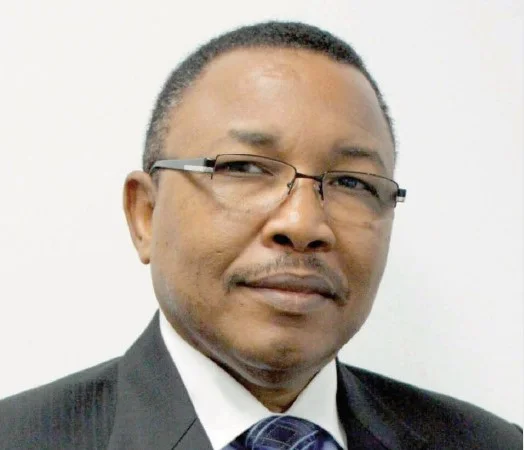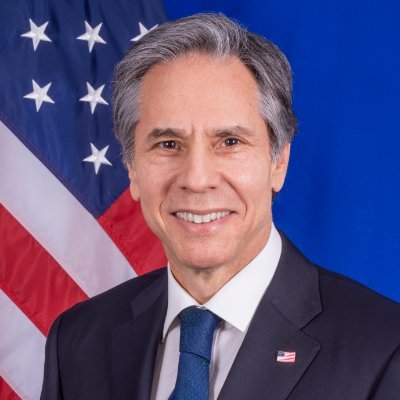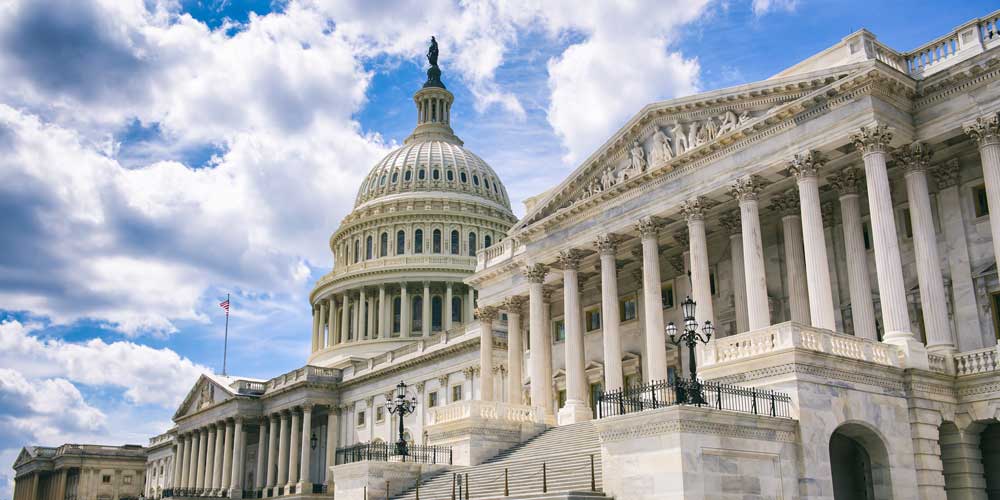Sudan govt welcomes new US Special Envoy – opposition in US Congress

Tom Perriello, US Special Envoy to Sudan (File photo: US Congress)
Sudanese leaders and commentators have welcomed the announcement by the US State Dept on Monday of the appointment of Tom Perriello as US Special Envoy for Sudan, however four opposition Republican members of the US Congress say the temporary appointment 10 months into the war, “demonstrates yet another failure in its [the Biden administration’] response to the crisis”.
In a series of posts on X (formerly Twitter), the deputy chairman of Sudan’s Sovereignty Council, Malik Agar, says he is “delighted for the appointment of Mr. Tom Perriello as the US special envoy for Sudan, as part of the US endeavours to contribute to peace making in Sudan and bringing about a cessation of hostilities agreement leading to ending of the war in Sudan…”
Agar says that “the government of Sudan will be categorically willing to engage positively with the Special Envoy, hoping that the special envoy shall be sensitive and considerate of the failed endeavours, that were far from achieving results.”
He notes that “any political settlement should be comprehensive and maintains the national unity of the country”.

(Photo: Supplied)
Former Sudanese Foreign Minister Omar Gamareldin described the priorities announced by Tom Perillo immediately after his appointment as US special envoy to Sudan as “logical and in line with what America wants from Sudan at this stage”.
The new US envoy said that his priorities are to stop the war in Sudan according to arrangements, foremost of which is a negotiation process between the two parties to the conflict that enhances efforts to end hostilities and secure unhindered humanitarian access, and then launch a political process that supports the Sudanese people in their quest to achieve their aspirations for freedom, peace, and justice.
In an interview with Radio Dabanga, Gamareldin stressed that the US administration’s interest in appointing the envoy and its handling of the Sudan situation now is more serious than ever.
‘The Biden administration wants to present the issue of ending the war in Sudan as one of its major achievements, especially as Biden enters a fierce election campaign against a stubborn rival, Donald Trump…’
– Former Sudanese Foreign Minister Omar Gamareldin
He suggested that the Biden administration is trying, through this entrance, to find a quick solution to the issue of Sudan before entering the electoral campaign next June and July, saying that “The Biden administration wants to present the issue of ending the war in Sudan as one of its major achievements, especially as Biden enters a fierce election campaign against a stubborn rival, Donald Trump.”

(Photo: US Govt)
US engagement
Following the appointment, US Secretary of State Anthony Blinken held two separate phone calls with Saudi Foreign Minister Faisal bin Farhan and Emirati Foreign Minister Abdullah bin Zayed, in which he stressed the necessity of ending the conflict in Sudan and putting an end to the suffering of civilians.
The US State Department said in two statements that Blinken also discussed with the two ministers the situation in Gaza and the need for concerted efforts to make the region safer.

‘Yet another failure in its [the Biden administration’s] response to the crisis…’ – Republican Members of Congress
Opposition in Congress
However, in a separate statement from Washington yesterday, US Senator Jim Risch (R-Idaho), ranking member of the Senate Foreign Relations Committee, US Representative Michael McCaul (R-Texas), chairman of the House Foreign Affairs Committee, Senator Tim Scott (R-S.C.), ranking member of the SFRC Subcommittee on Africa, and Representative John James (R-Mich.), chairman of the HFAC Subcommittee on Africa, asserted: “The temporary appointment of a special envoy to Sudan, 10 months into the war, should not be viewed as a recognition by the Biden administration of the significance of this crisis. Instead, it demonstrates yet another failure in its response to the crisis.”
The Republicans lamented: “This war has significant consequences for innocent Sudanese and for the entire region. As such, Congress began calling for a special envoy who reports directly to the president on a bipartisan basis immediately after the war began. We regret that after all these months, the administration still failed to appoint a more permanent presidential envoy.”
In July 2022, the US Senate confirmed John Godfrey as Ambassador Extraordinary and Plenipotentiary of the USA to Sudan. Sudan had hitherto been served by a deputy ambassador, making Godfrey the first fully ranked US ambassador to Sudan in 25 years. The confirmation of Godfrey’s appointment coincided with a vote by the US Congress to overwhelmingly approve a draft resolution, condemning the October 25 military coup, and voicing support for the people of Sudan.
US-Sudan relations
After a distinct thaw in US-Sudan relations following the overthrow of the Al Bashir regime and a movement toward democratic transition, relations between Washington and Khartoum have been strained following the subsequent the military coup d’état of October 25 2021.
The USA suspended all aid to Sudan following the coup, saying that “the United States is pausing assistance from the $700 million in emergency assistance appropriations of Economic Support Funds for Sudan. Those funds were intended to support the country’s democratic transition as we evaluate the next step for Sudan programming.”
On May 11, the US Senate passed a draft resolution “to condemn the military coup in Sudan and support the Sudanese people,” and the House of Commons also unanimously passed the non-binding resolution with a quick vote without any objections.
On March 23, the US Senate’s Foreign Relations Committee unanimously approved a draft resolution condemning the military coup in Sudan and calling on the US administration to impose sanctions on those responsible for the coup.
The draft resolution came two days after the US Treasury imposed sanctions on the paramilitary Central Reserve Forces (popularly called Abu Teira) that stand under the command of the police, in accordance with the Global Magnitsky Act*** on serious violations of human rights.
The Treasury listed the excessively violent repression of peaceful pro-democracy protests by the security forces as the main reason.
There have been wide calls for targeted US sanctions on the Chairman of Sudan’s Sovereignty Council Gen Abdelfattah El Burhan and deputy Chairman Mohamed ‘Hemeti’ Dagalo for their involvement in serious human rights abuses following the coup.
In March, the US Department of the Treasury’s Office of Foreign Assets Control (OFAC) announced sanctions on the Sudan Central Reserve Police (CRP, popularly known as Abu Tira) for serious human rights abuse yesterday. The Treasury listed the excessively violent repression of peaceful pro-democracy protests by the security forces as the main reason.
The US Department of the Treasury’s Office of Foreign Assets Control (OFAC) announced sanctions against ‘Sudan companies with links to Hamas‘, with one financier, Hisham Younis Yahia Qafisheh, allegedly “operating and managing at least two Sudan-based companies, Agrogate Holding and Al Rowad Real Estate Development, in order to generate revenue for the Palestinian group.”
Bilateral agreement
In November 2020, Sudan and the USA signed a bilateral claims settlement to resolve “default judgements and claims based on allegations that Sudan’s prior regime supported acts of terrorism”. According to the agreement, Sudan had to pay $335 million, on top of approximately $72 million already paid, for distribution to victims of terrorism.
Sudan’s removal from the SST list, decreed in the dying days of the Donald Trump administration, was conditional on a bilateral claims settlement signed in November 2020 to resolve “default judgements and claims based on allegations that Sudan’s prior regime supported acts of terrorism”. Sudan had to pay $335 million, on top of approximately $72 million already paid, for distribution to victims of terrorism.
In exchange, after payment of compensation to the families of the victims of the bombing of the destroyer USS Cole in Yemen in 2000, and the 1998 bombing of the US embassies in Dar El Salaam in Tanzania and Nairobi in Kenya, the default judgments and claims against Sudan in US courts would be dismissed, and Sudan’s sovereign immunities under US law would be restored to those enjoyed by countries that have never been designated by the US as a State Sponsor of Terrorism (SST).
*** The Global Magnitsky Act of 2016 authorises the US government to sanction foreign government officials worldwide who are deemed to be human rights offenders. Sanctions can include freezing their assets and banning them from entering the USA.











 and then
and then